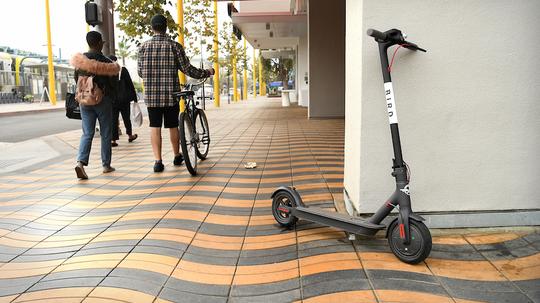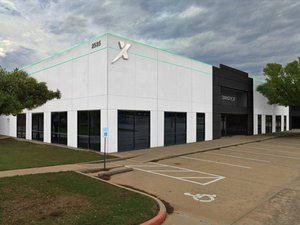
Bird, a California-based dockless scooter startup, says that Austinites have ridden its electric scooters more than 20,000 miles since the company launched its devices about two weeks ago.
In all, more than 5,000 people have tried the scooters, according to Matt Shaw, director of government relations at Bird. Meanwhile, he said contract workers who pick up and charge the dockless scooters have earned more than $25,000 already.
"How these things are put up in that last foot is critical to everyone’s safety out there."
Shaw's update came at an Austin Mobility Committee meeting on Tuesday at city hall where city officials briefed the committee on a plan to quickly create new laws to manage the growing number of dockless scooters -- and the sidewalk obstructions and tripping hazards that they can become.
It came amidst a lot of tension in the city over dockless scooters.
Bird was the first company to launch dockless scooters on April 5 -- without the city's permission. Then, after the city impounded 55 of the scooters on the first weekend but didn't penalize Bird, LimeBike decided to launch, saying they couldn't stand by and let Bird have a competitive advantage.
Now the city is proposing a legal framework similar to Seattle's that allows for a limited number of dockless scooters, bikes and other devices to be permitted. A $30 per device fee would help the city ensure taxpayers aren't paying for scooter impoundments and other enforcement activity.
Robert Spillar, the city's transportation director, said the biggest problem is the last foot or two of riders' journeys when they park their scooter. Often, those scooters fall down, sometimes blocking the sidewalk -- and creating a significant tripping hazard for anyone with visual impairments or using a wheelchair.
“These private companies are not very reactive to managing their fleet," Spillar said. “How these things are put up in that last foot is critical to everyone’s safety out there.”

Spillar also thanked the other 10 or so companies planning to deploy dockless scooters and bikes for following the city's public input process and holding off on putting their devices on the streets.
See the city's full presentation on dockless scooters and bikes here.
Next up, the Austin City Council will vote on a right-of-way law that appears to give the city authority to penalize dockless companies when scooters are left in the right-of-way. But almost immediately after that the city would launch a permitting process on May 1 that would allow for companies to apply to get permits.
It wasn't clear whether the city would allow Bird and LimeBike in on that process, but a city official said the companies would have to be in "good standing with the city," which would likely include paying for those initial 55 impoundments.
Meanwhile, other scooter companies are hoping that by following the city's process, they'll have an opportunity to compete -- and not fall far behind Bird and LimeBike, which had a head start in the local market and have the most venture capital funding.
A representative with Spin, which also plans to launch dockless devices in Austin, said that the company has been running a closed pilot project at St. Edward's University. So far, more than 5,500 miles have been ridden just inside the small campus, he said.
Two people told the committee that they've been using the scooters for short trips and love having them available, and one man said that collecting the scooters in his pickup and charging them has helped him earn meaningful supplemental income.
But others pressed the city to look closer and carefully consider the consequences of rushing new rules through.
Elliott McFadden, executive director of Austin B-cycle, said city council members should stick to their plans to gather more public input and carefully craft a law.
"These companies' only objective is to produce a return on investment, not general public good," he said. "We hear much about all the foreign and domestic venture capital being dumped on the dockless model. But if their model is so great, why can they not wait months for us to do the process we set out?"








